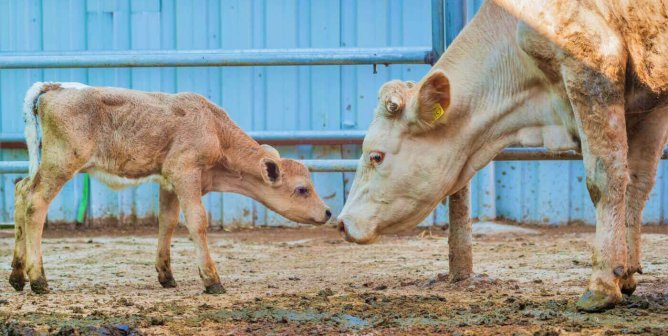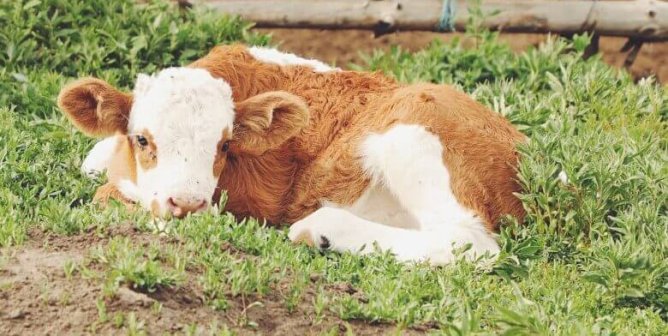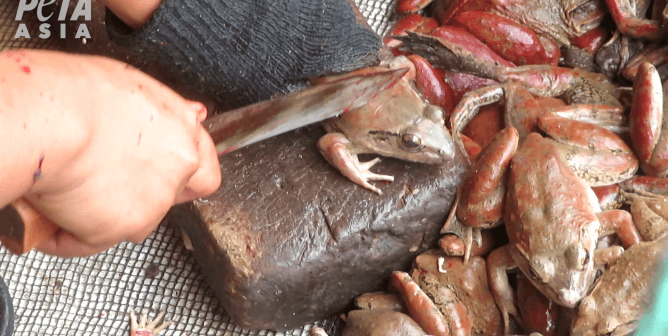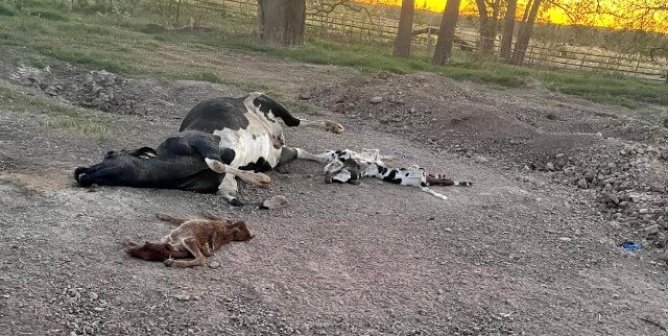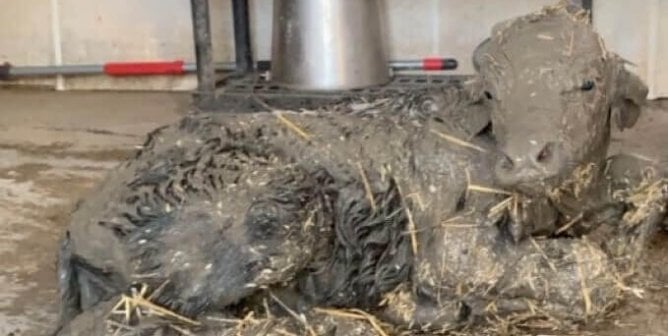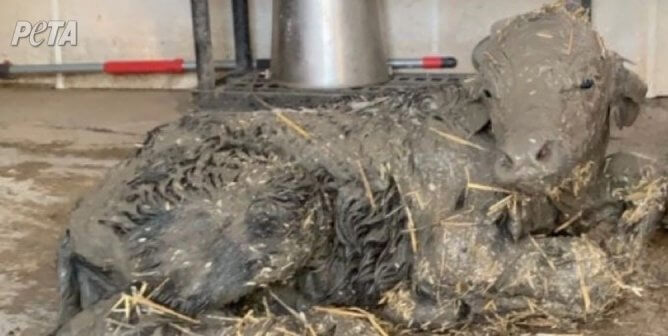The Organic and ‘Free-Range’ Myths
Organic Meat, Eggs, and Dairy “Products”
Don’t be misled by packages of meat, eggs, and dairy “products” with pictures of happy animals running near quaint country barns and reassuring labels proclaiming “organic” or “free-range.” Animals on typical organic and “free-range” farms often spend much of their time confined to crowded sheds or mud-filled pens, just as animals on conventional factory farms do. While the U.S. Department of Agriculture (USDA) requires animals on so-called “free-range” farms to have access to outdoor areas, it doesn’t specify how much time they must be allowed to spend outside or how much space they should be given.
Cows on organic dairy farms can be kept in crowded sheds, mired in their own waste, much like cows on factory dairy farms. They, too, are artificially impregnated every year, and their calves are taken from them soon after birth. Cows on organic farms often aren’t given antibiotics—even when they’re sick or when their udders become infected, something that happens often—because medicated animals lose their “organic” status.
Animals on organic and “free-range” farms often endure the same cruel mutilations—such as debeaking, dehorning, and castration without painkillers—as animals on conventional factory farms. Cattle, for example, generally have their horns cut off and their testicles cut out of their scrotums, and many are branded with searing-hot irons. Pigs on organic farms often have their tails cut off and their ears notched, and some have rings forced into their sensitive noses in order to prevent them from rooting in the grass and dirt, which is a favorite pastime of pigs. Chickens on organic egg farms usually have part of their sensitive beaks cut off, which causes them both acute and chronic pain.
At the end of their miserable lives, these animals are typically shipped on trucks through all weather extremes—usually without food, water, or rest—to the same slaughterhouses used by factory farms. There, the animals are hung upside down and their throats are cut, often while they’re still conscious and struggling to escape. Many chickens are still able to feel pain when they’re submerged in the scalding-hot water of the defeathering tanks, and cows may be conscious as their bodies are hacked apart.
Are They Really Any Healthier?
The USDA “makes no claim that organically produced food is safer or more nutritious than conventionally produced food.” “Organic, “natural,” “humane,” and “free-range” eggs, milk, and meat are filled with artery-clogging saturated fat and cholesterol, just like conventional meat, milk, and eggs. Study after study links the consumption of animal-derived foods to heart disease, cancer, and other serious health problems. And because organic and “free-range” animals are usually raised in crowded conditions and killed in the same filthy, excrement-ridden slaughterhouses as animals from factory farms, their flesh may also be contaminated with bacteria and other pathogens.
The only truly humane foods are those that don’t come from animals. Order PETA’s free vegan starter kit, and we’ll send you recipes and tips to help you make the transition to healthy, cruelty-free eating.
